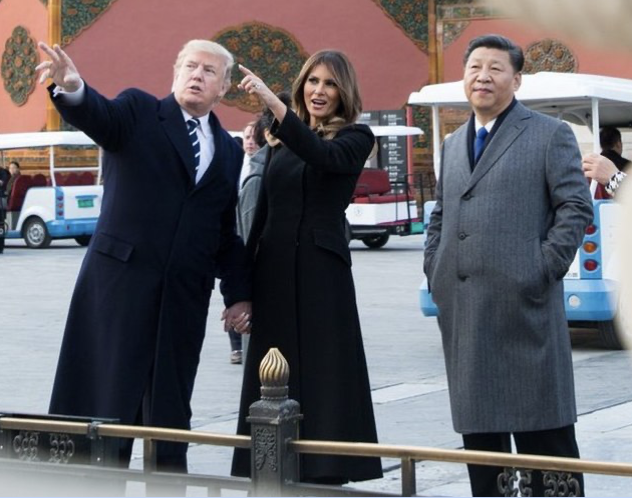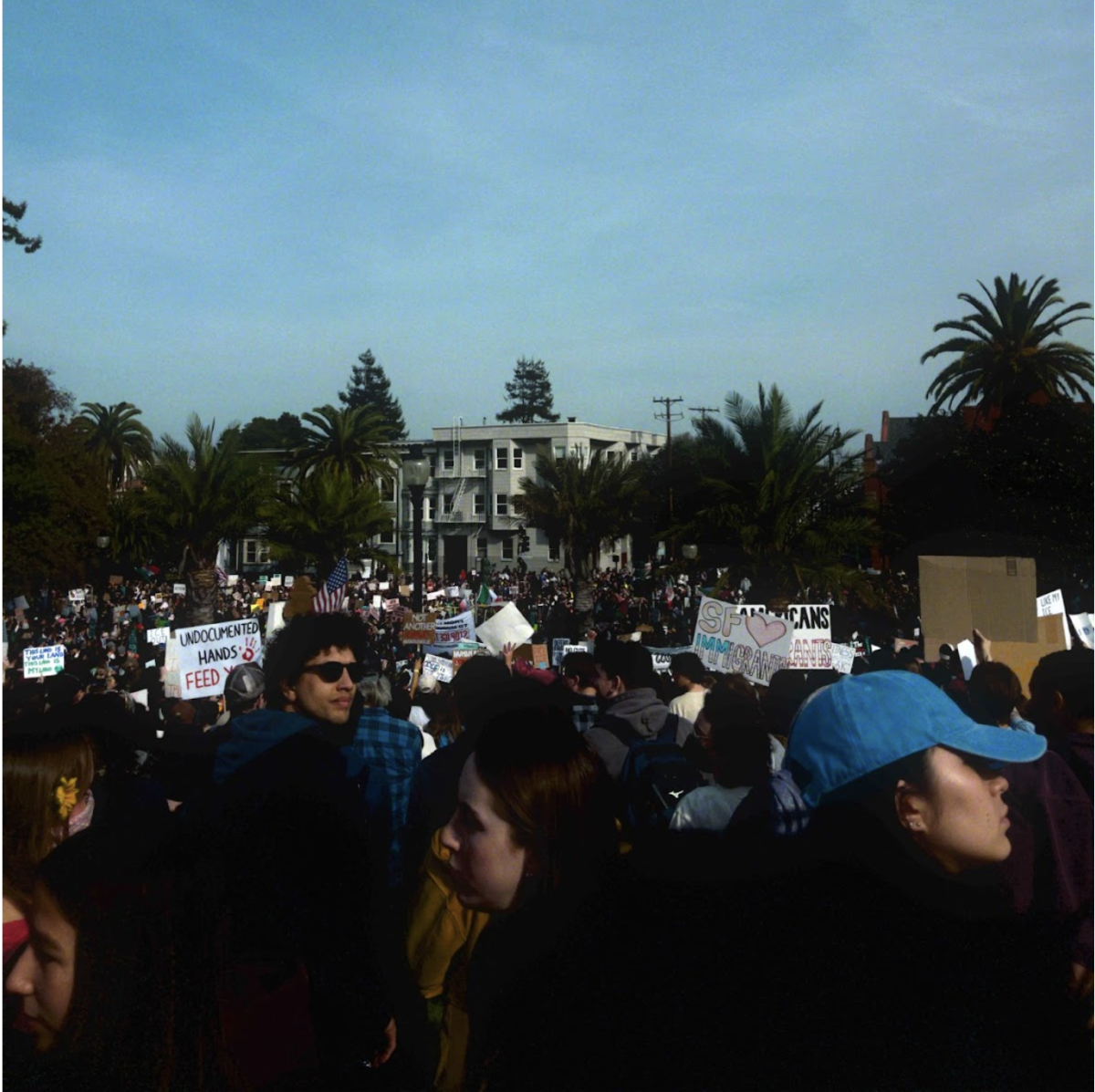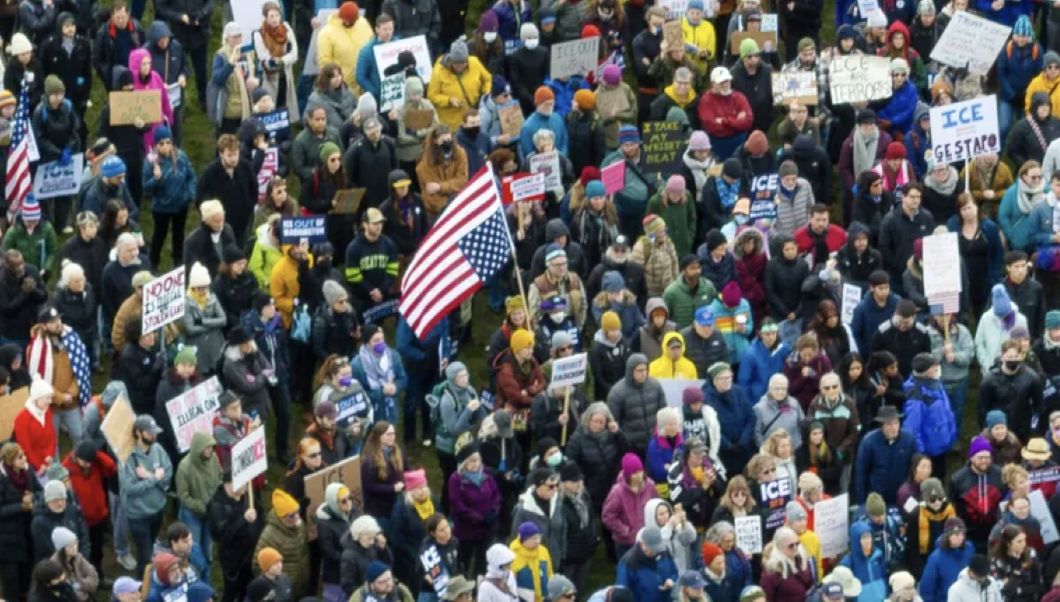Today, the Trump administration issued a 90-day tariff pause on all countries, with the exception of China whose tariff rate was raised to 125%. This comes after a tumultuous week of tariff negotiations as the White House tries to bring overseas companies back to the U.S. This break in tariff increases gives countries, most of which are major U.S. trading partners and allies, more time to rethink their reciprocal tariffs on the U.S.
The Trump administration enacted the additional tariff amount to the planned 50% because yesterday, China issued an 84% retaliatory tariff on U.S. goods. The exchange of the various reciprocal tariffs between the U.S. and China, whose relationship is already strained by economic and security disputes, are a sign of the growing trade war between two of the most powerful nations, according to Mandarin teacher Hong Yao.
“The relationship between the U.S. and China has been building up for a long time,” Yao said. “It makes me sad to think that Trump is ruining the relationship with China, and because China is very strong; they don’t care about how a trade war affects the U.S. economy and will just go to other countries to trade,”
Trump’s policy on tariffs is strict because he doesn’t want the U.S. to be taken advantage of by other countries, according to The White House. He believes that the U.S. trade deficit is an emergency that threatens the protections of American workers and has to be addressed through retaliatory tariffs.
The concept of raising tariffs is a tactic used to bolster a nation’s economy and defend its industry from foreign interference. By enacting strong tariffs on goods from other countries, the US can raise as much as $400 billion in revenue, but it comes at the expense of regular Americans who will pay the price through inflation and low income growth, according to J.P. Morgan.
In recent days, speculation and fear have driven a dive in the stock market as people prepare for a rise in inflation. While it may take time to recover, positive trade talks between the U.S. and other countries, such as East Asian countries like Japan, have potential to bolster the market, according to Yahoo Finance. Now that most of Trump’s planned tariffs have been stalled, the market rose by 8% since yesterday, resulting in one of the largest one-day gains in U.S. history. This brought relief to many Americans who had been watching the market steadily lose money everyday.
“I have been avoiding checking my stocks to save myself the agony of watching them plummet,” freshman Anika Agarwal said. “Last time I checked, everything was red, and it’s certainly gotten worse since the tariffs were implemented, but maybe there’s light at the end of the tunnel,”
The tariffs issued to 60 of the US’s most valuable trading partners, one of them including China, is calculated by amount through an equation that takes the trade deficit for US goods in a particular country, divides that by the total goods imports from that country, and divides that number by two, according to the Office of United States Trade Representative. However, this basic equation used to dictate the lives of many Americans is an overly-simplified way of looking at the U.S. economy, according to sophomore Leila Sawicki.
“The equation fails to look at how many of so-called ‘U.S.-made’ products are actually produced overseas and then shipped in to be sold within America,” Sawicki said. “These products are really the backbone of commerce within the U.S., and the tariffs will let some of those items, like cars, become completely out of reach for demographics who could otherwise afford them,”
One of the largest effects of the tariffs is inflation. Inflation is caused when businesses, who have to pay more for imported goods, pass on those costs to their customers. As imported goods and services account for almost 16% of the US’s gross domestic product, many people will be hit hard by the tariffs, according to Statista.
“The US-China relationship isn’t just business, it’s a partnership that’s been developing since 1976, and now it’s frozen and hurt,” Yao said. “It will take a long time to rebuild it in the future.”















